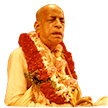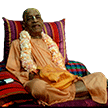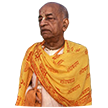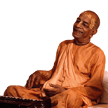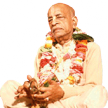Silence - an essential subject: Difference between revisions
(Created page with "Category:Essential Subjects <!----------------------- edit below this line -----------------------> <!------------------------ begin introduction text below --------------...") |
(Vanibot #0041: Moves Choose Another box to the end) |
||
| Line 2: | Line 2: | ||
<!----------------------- edit below this line -----------------------> | <!----------------------- edit below this line -----------------------> | ||
<!------------------------ begin introduction text below ------------------------> | <!------------------------ begin introduction text below ------------------------> | ||
A devotee is always transcendental to artificial fame and infamy, distress or happiness. He is very patient. He does not speak of anything but the topics about Kṛṣṇa; therefore he is called silent. Silent does not mean that one should not speak; silent means that one should not speak nonsense. One should speak only of essentials, and the most essential speech for the devotee is to speak for the sake of the Supreme Lord. | |||
Srila Prabhupada's books, lectures, conversations and letters offer a comprehensive presentation of this essential subject as seen in the Vaniquotes '''[[Vaniquotes:Category:Silent| | Srila Prabhupada's books, lectures, conversations and letters offer a comprehensive presentation of this essential subject as seen in the Vaniquotes '''[[Vaniquotes:Category:Silent|Silence]]''' category. An introduction from his Teachings is given below in the following 8 quotes. | ||
<!-------- end introduction text and don't touch next three lines ---------> | <!-------- end introduction text and don't touch next three lines ---------> | ||
---- | ---- | ||
== Quotes from Srila Prabhupada's | == Quotes from Srila Prabhupada's Teachings == | ||
<!----------------- edit quote boxes below this line -----------------> | <!----------------- edit quote boxes below this line -----------------> | ||
{{VaniQuotebox| | {{VaniQuotebox|A Krsna conscious person gradually elevates himself without endeavoring for this so-called silent meditation. Simply because he is engaged in Krsna consciousness he automatically gives up all this nonsense and develops a high character|A Kṛṣṇa conscious person gradually elevates himself without endeavoring for this so-called silent meditation. Simply because he is engaged in Kṛṣṇa consciousness he automatically gives up all this nonsense and develops a high character. One develops the highest character by becoming a pure devotee of Kṛṣṇa. The conclusion is that no one can truly have any good qualities if he is lacking Kṛṣṇa consciousness. '''(Nectar of Devotion, Chapter 1)'''}} | ||
{{VaniQuotebox| | {{VaniQuotebox|A liberated person enjoys happiness by factual experience. He can, therefore, sit silently at any place and enjoy the activities of life from within|A liberated person enjoys happiness by factual experience. He can, therefore, sit silently at any place and enjoy the activities of life from within. Such a liberated person no longer desires external material happiness. This state is called brahma-bhūta (SB 4.30.20), attaining which one is assured of going back to Godhead, back to home. '''(Bhagavad-gītā 5.24)'''}} | ||
{{VaniQuotebox| | {{VaniQuotebox|Because of special favor bestowed upon Prahlada Maharaja, he remained silent and unafraid, even though all the demigods, including even Laksmidevi, were afraid of Lord Nrsimha-deva| Because of special favor bestowed upon Prahlāda Mahārāja, he remained silent and unafraid, even though all the demigods, including even Lakṣmīdevī, were afraid of Lord Nṛsiṁha-deva. Nārāyaṇa-parāḥ sarve na kutaścana bibhyati (SB 6.17.28). Not only is a pure devotee of Nārāyaṇa like Prahlāda Mahārāja unafraid of any dangerous condition of material life, but also if the Lord appears to mitigate the fear of a devotee, the devotee maintains his status of fearlessness in all circumstances. '''(Śrīmad-Bhāgavatam 7.9.2)'''}} | ||
{{VaniQuotebox| | {{VaniQuotebox|By nature I am active. By nature, because I am spirit, and by nature I am active. And my activities are exhibited even I am contaminated with this matter. And when you become purified from matter, do you think you shall be silent?|By nature I am active. By nature, because I am spirit, and by nature I am active. And my activities are exhibited even I am contaminated with this matter. And when you become purified from matter, do you think you shall be silent? Is there any reason? So do you...? To become Brahman does not mean to become void. No. To become Brahman means superior energy. With superior energy, we have to work with superior endeavor and superior energy and superior position. And therefore it is called, in the next line, bhajanty ananya-manasaḥ: "One who has become mahātmā, his symptom is that he's fully engaged in the loving transcendental service of Kṛṣṇa." '''(Bhagavad-gītā Lecture, 27 November 1966, New York )'''}} | ||
{{VaniQuotebox| | {{VaniQuotebox|From the very beginning of his childhood, Prahlada Maharaja was uninterested in childish playthings. Indeed, he gave them up altogether and remained silent and dull, being fully absorbed in Krsna consciousness|From the very beginning of his childhood, Prahlada Maharaja was uninterested in childish playthings. Indeed, he gave them up altogether and remained silent and dull, being fully absorbed in Krsna consciousness. '''(Śrīmad-Bhāgavatam 7.4.37)'''}} | ||
{{VaniQuotebox| | {{VaniQuotebox|He (King Satrajit) accepted the jewel in his hand, but he remained silent, bending his head downwards, and without saying anything in the assembly of the kings and chiefs, he returned home with the jewel| He accepted the jewel in his hand, but he remained silent, bending his head downwards, and without saying anything in the assembly of the kings and chiefs, he returned home with the jewel. Then he thought about how he could clear himself of the abominable act he had performed by defaming Kṛṣṇa. He was conscious that he had offended Kṛṣṇa very grievously and that he had to find a remedial measure so that Kṛṣṇa would again be pleased with him. '''(Kṛṣṇa Book, Chapter 56)'''}} | ||
{{VaniQuotebox| | {{VaniQuotebox|It is not that because one is a fool and cannot speak nicely he therefore takes the vow of mauna. Rather, one becomes silent so that people will not disturb him| It is not that because one is a fool and cannot speak nicely he therefore takes the vow of mauna. Rather, one becomes silent so that people will not disturb him. It is said by Cāṇakya Paṇḍita that a rascal appears very intelligent as long as he does not speak. But speaking is the test. The so-called silence of a silent impersonalist svāmī indicates that he has nothing to say; he simply wants to beg. '''(Śrīmad-Bhāgavatam 3.24.42)'''}} | ||
{{VaniQuotebox| | {{VaniQuotebox|It is said by Canakya Pandita that a rascal appears very intelligent as long as he does not speak. But speaking is the test. The so-called silence of a silent impersonalist svami indicates that he has nothing to say; he simply wants to beg|It is said by Cāṇakya Paṇḍita that a rascal appears very intelligent as long as he does not speak. But speaking is the test. The so-called silence of a silent impersonalist svāmī indicates that he has nothing to say; he simply wants to beg. But the silence adopted by Kardama Muni was not like that. He became silent for relief from nonsensical talk. One is called a muni when he remains grave and does not talk nonsense. '''(Śrīmad-Bhāgavatam 3.24.42)'''}} | ||
<!----------------- edit quote boxes above this line -----------------> | <!----------------- edit quote boxes above this line -----------------> | ||
''' | '''Silence - [[Vaniquotes:Category:Silent|explore more within this category]]'''. | ||
{{EsentialSubjectTotal}} | {{EsentialSubjectTotal}} | ||
<div style="float:left;"> | |||
{{EssentialSubjectnav}} | |||
</div> | |||
__NOTOC__ | __NOTOC__ | ||
__NOEDITSECTION__ | __NOEDITSECTION__ | ||
Latest revision as of 17:36, 22 November 2020
A devotee is always transcendental to artificial fame and infamy, distress or happiness. He is very patient. He does not speak of anything but the topics about Kṛṣṇa; therefore he is called silent. Silent does not mean that one should not speak; silent means that one should not speak nonsense. One should speak only of essentials, and the most essential speech for the devotee is to speak for the sake of the Supreme Lord.
Srila Prabhupada's books, lectures, conversations and letters offer a comprehensive presentation of this essential subject as seen in the Vaniquotes Silence category. An introduction from his Teachings is given below in the following 8 quotes.
Quotes from Srila Prabhupada's Teachings
Silence - explore more within this category.
Vanipedia has now over 903 introductory articles compiled from Srila Prabhupada's books under the series titled Essential Subjects. All these articles can be seen in the Table of Content on the right side of this article and also here in this Umbrella Category. Browse through them to relish the breadth and depth of Srila Prabhupada's teachings - There is a subject for everyone.
